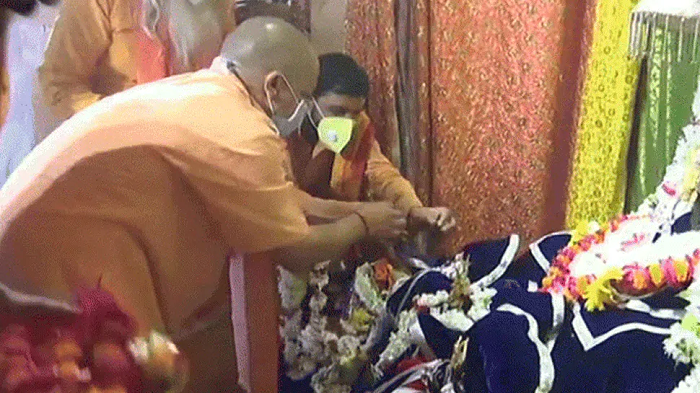Ghaziabad, Apr 1: Uttar Pradesh Chief Minister Yogi Adityanath described the Indian Army as "Modi ji ki sena" (Prime Minister Narendra Modi's Army) during an election campaign for the BJP here.
Hitting out at Opposition parties over a host of governance issues Sunday, Adityanath said what was "impossible" for the Congress, Samajwadi Party and the Bahujan Samaj Party is possible under the BJP rule.
"Congress ke log aatankwadiyon ko biryani khilate the aur Modi ji ki sena aatankwadiyon ko goli aur gola deti hai (Congress people would feed biryani to terrorists, while Modi's army gives them bullet or bomb). This is the difference. The Congress people use 'ji' in Masood Azhar's name to encourage terrorism," he said.
"Under Prime Minister Modi's leadership, terror camps are being destroyed which is breaking the back of terrorists and Pakistan. This is the work being done by the BJP government and this is the difference," the Uttar Pradesh chief minister added.
"What was namumkin (impossible) for the Congress is mumkin (possible) for PM Modi. Because when Modi is there, the impossible becomes possible," he said.
Campaigning for sitting MP and Union minister V K Singh, Adityanath earlier listed out the achievements brought in the region under five years of Modi rule in the Centre and two years of his in the state.
He also said the situation of safety in western Uttar Pradesh has improved and nobody can misbehave with women and girls, while criminals are either behind the bars or dead.





Comments
I think this crature Yogi is becoming mad day by day and am sure that soon he will be 100 percent mad and will be seen running in the streets naked. He is giving illogic and communal statemetns. EC should take note of his speech and ban him from giving any speech in public. He is spread hate among different communities which may lead to riot causing death and loss to public plus govt properties.
Add new comment